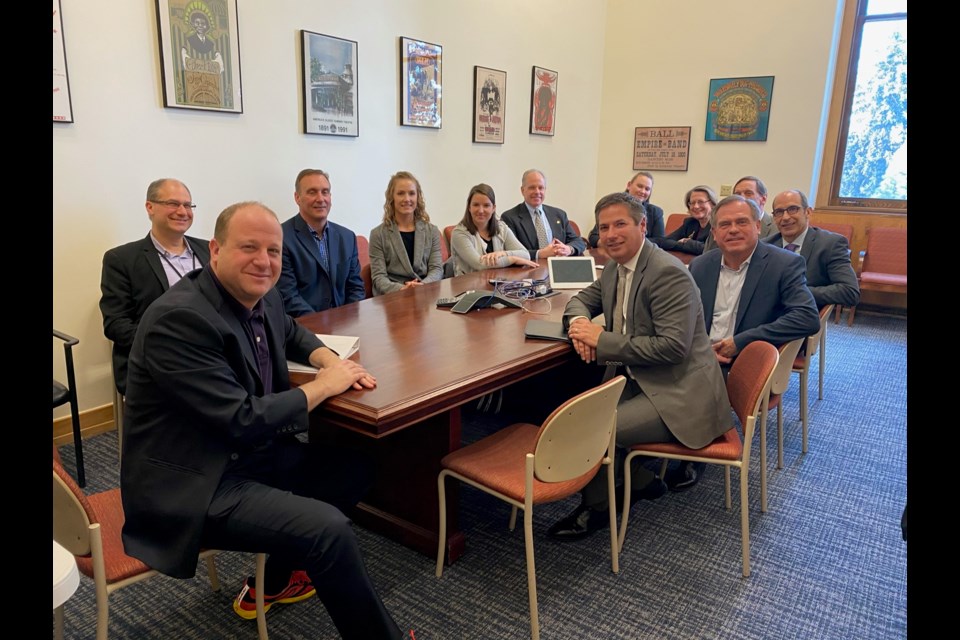As women continue to balance careers, caregiving, and household responsibilities, workplace wellness has emerged as a growing area of concern nationwide. The 2025 Women’s Health Summit, hosted by the Denver Business Journal on Thursday, May 15, will gather business and nonprofit leaders to discuss how employers can better support women’s mental health.
Held from 11:00 a.m. to 1:30 p.m. at the Seawell Ballroom at the Denver Center for the Performing Arts (1350 Arapahoe St, Denver), the event will feature a fireside chat with wellness advocate and former Peloton instructor Kendall Toole, followed by panelists such as Alana Brandes, chief people officer at Guild; Cammie Cable, vice president of people operations and compensation at Intermountain Health; Chelsea Carver, chief strategy and resource development officer at Mile High United Way; and Alethea Gomez, Colorado executive director at Executives Partnering to Invest in Children (EPIC).
Carver said the goal of the panel is to not only acknowledge the pressures women face, but to urge leaders to take action in creating supportive environments. Gomez echoed that point, emphasizing the need for wellness to be treated as a core component of business strategy.
“Employers have a unique opportunity to provide support for not just women, but all people in their workplace,” Gomez said. “One thing they can do is become informed and build their awareness around what is being experienced in the workplace.”
According to Gomez, awareness remains limited. She cited a 2023 Deloitte report which found that only 25 percent of women globally feel comfortable discussing mental health challenges at work. Meanwhile, she said, mental health-related leaves of absence have increased 300 percent since 2017.
Flexibility and caregiving accommodations are key, Gomez said. “We have to think about what’s actually reducing stress. Flexibility in schedules. The ability to care for family. Those rank high.”
In a recent survey of 5,000 Colorado employees conducted by EPIC, 80 to 90 percent of respondents reported that access to childcare significantly affected their productivity, retention, and mental health. A joint report by EPIC and the Common Sense Institute estimated that returning 10,000 women with young children to the workforce could add $4 billion to Colorado’s GDP.
“We see that there are both qualitative and quantitative impacts from supporting the needs of women and professional mothers,” Gomez said. “If we don’t provide a pathway for women to engage fully at home and at work, we will continue to see ripple effects on our economy, workplaces, and families.”
The International Labour Organization estimated that 708 million women worldwide were unable to participate in the workforce in 2023 due to unpaid caregiving responsibilities.
Carver stressed the importance of normalizing open dialogue around mental health, particularly among women in leadership roles.
“One of the most powerful things we can do is tell the truth about what we’re going through,” she said. “When a woman in leadership says she’s struggling, she’s not just being vulnerable. She’s opening the door for someone else to feel safe.”
That sense of safety, Gomez said, is often missing. She called for workplace policies that explicitly address mental health and for employers to ensure those resources are clearly communicated to staff.
“A lot of these things are available, but employees don’t know,” she said. “Establishing clear, informed programs and positioning managers as support figures is key.”
EPIC also advocates for broader family-friendly policies, including caregiving flexibility, assistance finding care, and on-site or subsidized childcare where feasible. But Gomez noted that a cultural shift must match these supports.
“I know so many people in their 20s and 30s who say they can’t imagine having kids,” she said. “They don’t feel supported enough to make that decision confidently.”
For Gomez, who has led teams of more than 60 women and is now a mother herself, these issues are both professional and personal. She recalled her return to work after childbirth as one of the most difficult times in her life.
“I felt torn between what I wanted to do out in the world and what I wanted to do for my child,” she said. “That push and pull is so real. It made me a stronger advocate for what’s possible, both within ourselves and in our communities.”
Organizers of the Women’s Health Summit say the event is designed to foster dialogue and provide practical strategies that attendees can implement across sectors and communities.
“We want people to walk away curious about how they can support the women in their lives,” Carver said. “And ready to act.”
Tickets are $75 and can be purchased online.



